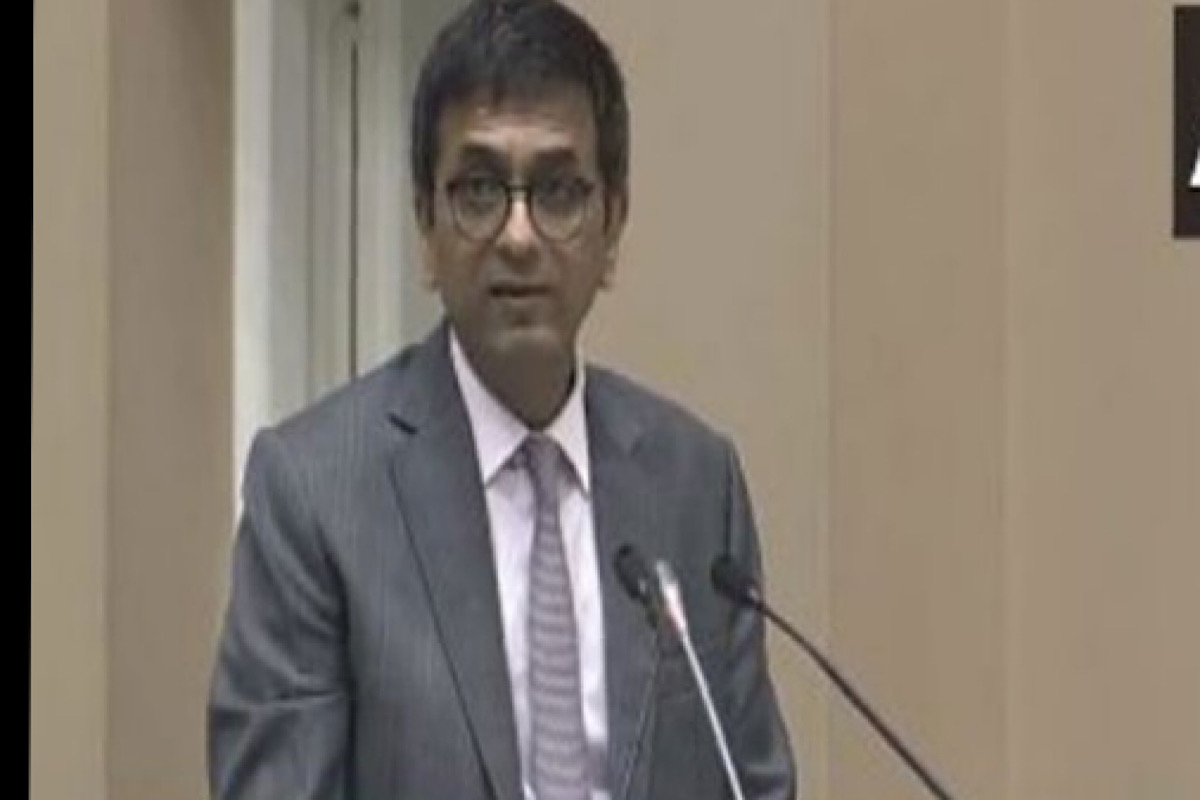Describing the three new criminal laws — the Bharatiya Nyaya Sanhita, the Bharatiya Nagarik Suraksha Sanhita (BNSS), and the Bharatiya Sakshya Adhiniyam -– as a “watershed moment” for the Indian society, the Chief Justice of India, Justice D Y Chandrachud, on Saturday said that the new criminal laws bring the much-needed improvement in the criminal justice system, ushering it to a new age.
In his inaugural address at the day-long conference on ‘India’s Progressive Path in the Administration of Criminal Justice System’, CJI Chandrachud said, “The newly enacted criminal laws have transitioned India’s legal framework on criminal justice into a new age. Much-needed improvements have been introduced to protect victim interests and carry out the investigation and prosecution of offences efficiently.”
Advertisement
The day-long conference was organised by the Ministry of Law and Justice.
Stating that the Bharatiya Nagarik Suraksha Sanhita (BNSS) encompasses a “holistic approach” to deal with crimes in the digital age, Chief Justice Chandrachud said that the audio-visual recording of search and seizures is an “important tool for the prosecution as well as for protecting the civil liberties of citizens” and the judicial scrutiny would “safeguard the rights of citizens against procedural impropriety” during search and seizures.
Similarly, Chief Justice Chandrachud said that the presence of a forensic expert at the scene of the crime will enhance the efficiency of the investigating team and allow for crimes to be decoded with the aid of the latest advancements in forensic technology. He called for focusing on improving investigations by allowing for multi-disciplinary investigating teams with law enforcement officers, and domain experts in the field of cyber-crime, and pattern recognition.
CJI Chandrachud said that while we make strides in this direction, we must now confront the challenges of fulfilling the aims of the new criminal legislations. “Detailed rules need to be formulated on the type of devices to be used for recording, incorporating the principles of natural justice and lay down the consequences of not carrying out such recording,” he said.
Calling for heavy investment in capacity building, CJI Chandrachud said that while the new criminal laws create provisions which are synchronised to our times, we must also ensure that the infrastructure accompanying these procedures are developed adequately for the “country to reap the benefits of the new laws”.
Referring to the BNSS provision, which says that trial in a criminal case must be completed in three years and judgment pronounced within 45 days after order has been reserved, CJI Chandrachud said that the “stipulation is a breath of fresh air” for addressing the issue of case pendency as well as the rights of the victim and the accused in a criminal case.
However, he cautioned that “if the court infrastructure and the prosecution lack material resources to harness technology and conduct an efficient and speedy trial, then the guarantees of the BNSS may run the risk of becoming merely directory and unimplementable.”
On one hand, the CJI said, that BNSS has adopted a “citizen-centric approach” to supply a copy of the First Information Report to the victim and to inform them about the progress of the investigation, including by digital means, on the other hand, it has made a “positive development in protecting the fundamental rights of undertrial prisoners”. Section 481 of the BNSS prescribes default bail for an accused person who has undergone one-third of the sentence, if convicted, for the offence charged against him.
The BNSS, the CJI pointed out, prescribes that in cases where the punishment for the offence is seven years or more, the victim shall be given an opportunity of being heard before the withdrawal of the case by the government.
“Our laws and their implementation is an ever-evolving area. There is no finality to any law or the manner of its implementation. However, we must be willing to embrace positive changes to meet the needs of our times. I expect that with the implementation of the new criminal laws, we will discover loopholes and areas which need to be addressed,” CJI Chandrachud said, exhorting to update the criminal laws with changing times and plugging the loopholes.
The conference was also addressed by the Minister of State for Law and Justice (Independent charge), Arjun Ram Meghwal, the Attorney General of India, R Venkataramani, and the Solicitor General, Tushar Mehta, among others.











